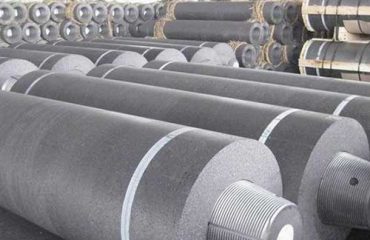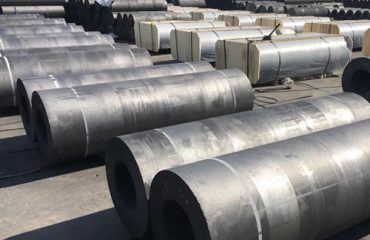The maximum heat resistance of the resin is 180 ℃. High temperature resistant materials can be prepared by using DP resin of A-step phenolic resin as impregnant. Porous carbon is pre impregnated with high melting point polytetrafluoroethylene paraffin, and the optimum temperature is 315-327 ℃. Then it is impregnated with low melting point polytetrafluoroethylene paraffin, and the optimum temperature is 260 ~ 280 ` C. Porous carbon with high density, impermeable and impermeable can be prepared. In addition to high hardness and wear resistance, the products have good thermal stability, corrosion resistance and low permeability, which can be used as high temperature chemical mechanical seal products. Styrene or tripropene cyanogen is dissolved in the aqueous solution containing HZO: polymerization catalyst and heated at 170 ℃ for 0.5-5 hours to form a colloidal impregnation solution. After the carbon products are immersed in this solution, they are recycled and carbonized. In order to prevent the resin from volatilizing violently, the concentration of polymerization catalyst is 0.1% to 0.5%, and the porosity of the product can be reduced by 60% to 80%. 3. Oil, grease and paraffin impregnant are brush dipped with grease, wax or oil. The stability and toughness of the impregnant remain unchanged when the working temperature is as high as 300 ℃. In order to improve its sliding performance and avoid the maceration melting and flowing out of the brush during the process, inorganic additives (such as sulfide, oxide or PTFE powder) are added to the maceration. In order to eliminate the solvent in the additive, the brush should be dried at 80 ℃. When the carbon material is immersed in quick drying oil, the quick drying oil on the surface forms a hardening film when it is immersed into the product pore. Quick drying oil is castor oil, tung oil and flax oil. The drying accelerators are naphthenic acid and aluminum naphthenate. The quick drying oil immersed in the product can form a film in about 10 hours when it contacts the surface of air at normal temperature. When the naphthenic acid drill and aluminum naphthenate are added, the film is formed at room temperature for several hours. At 100 ℃, the film is formed at 1-2 hours. The quick dry oil on the surface of the material is hardened in contact with air. The quick drying oil immersed in the product shall not harden. Friction with the sliding surface. The contact surface of quick drying oil will not lose its lubricity. If the sealing ring with the same performance is prepared compared with the impregnated resin, the production cycle is short and the product cost is low. A impregnated oil, refractory wax or non flowing oil is used as an impregnant. It is made from synthetic, mineral, animal or vegetable oils, paraffins and a gel. The gel is montmorillonite phosphate, and its surface is long chain carbon hydrogen compound. It can also maintain stability and viscosity at 300 ℃, without melting and overflow. The abrasion resistance of the brush impregnated with this impregnant is increased by three times. Graphite products are impregnated with epoxy compounds, polyfunctional isophoric acid ester compounds and heterocyclic generators. Multi functional epoxy compounds are those with more than two functions, such as glycidyl ether of viscous phenolic A, epoxidation of cyclic aliphatic group and linear phenolic resin, such as 4,4 ‘- biphenylmethane isopentate, toluene diisopentate, heterocyclic generator l-monophenyl ether-2-phenylmiwa. Generally, the carbon materials used for mechanical seal are impregnated with furan and phenolic resins, but with the increase of surface pressure and temperature, the wear resistance of these resins is obviously accelerated. The carbon products made of this kind of impregnant wear little under high temperature and high pressure.


